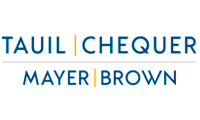After a little over two years of the enactment of Law N. 12.529/11 (“Brazilian Antitrust Law”), that introduced the previous notification system, the Administrative Council for Economic Defence’s (“CADE”) practical experience is already pointing the aspects that may require minor adjustments to allow a more transparent, consistent and efficient manner to address antitrust assessments in Brazil. On September 25th, the Federation of Industries of the State of São Paulo (“FIESP”), one of the most relevant forums for the discussion of important economic and industrial subjects in Brazil, has promoted a seminar, with the presence of renowned academics, lawyers and industry representatives to discuss the most relevant aspects of Brazil’s current antitrust policies.
Institutional agenda
One of the panellists was CADE’s President, Vinícius Marques de Carvalho, who stated that some minor, yet significant, changes are on their way, starting from the three public consultations published in early 2014, and comprehending a few other to be announced until 2015. The main idea of such public consultations is to allow the adjustments deemed necessary to a more transparent and consistent antitrust assessment.
Officials have been superficially talking about such changes in recent seminars and events throughout Brazil, and they are expected to be formally announced by CADE in one of its upcoming plenary sessions to soon take place.
The changes are aiming at addressing material and procedural aspects of the merger clearance procedure, as well as behaviour and compliance related aspects, that may not have been sufficiently addressed by the Brazilian Antitrust Law, or by its regulations, and could, therefore, be further detailed to bring more certainty and increase CADE’s level of predictability in tackling such issues.
About merger control
New regulations - Concerning the impacts that such measures may have in merger control, CADE’s President has announced that the regulation drafts that shall be submitted to public consultation still in 2014 and 2015, should provide clearer grounds concerning the procedure to be observed in pre-notification consultancies and general consultancy procedures. It should also establish a proper procedure for the assessment of supposed gun jumping infractions, and the posterior notifications (until one year after transactions were executed).
As to the material aspects, guidelines meant to define what shall not be interpreted as gun jumping is also in the authority’s agenda. They do not mean to define what is gun jumping, since this is a concept intended to be left open, but should more clearly signalize the limits within which parties to a concentration may converge their strategic actions. Carvalho has highlighted the important role of clear teams and the intention to foresee the possibility for what they called a “parlour room”, where financial aspects of common interests may be discussed, excluding market behavioural strategies.
Thresholds - CADE’s initiative seems to aim at avoiding the lack of a clear formal statements from the authority, to allow lawyer’s creativity to interpret such uncovered aspects as they may will, as already happened recently in some thresholds interpretations, for instance. As clear as the Brazilian Antitrust Law and its regulations may be in the generally applicable turnover thresholds, some few seem to have find a third criteria involving an effects test, that would supposedly require a transaction to have effects in Brazil, even when objective thresholds were met, in order the attract CADE’s jurisdiction to assess the transaction. According to Carvalho, this is neither established by the law or the regulations.
Still according to Carvalho, now addressing a recurrent question on private equity funds, the terms provided by the Law - turnover and volume of business - shall be construed in a way to comprise only the productive business (or operational business) in Brazil, whether local or through exports to Brazil. Investments shall not be regarded as “volume of business” for the purposes of the merger control threshold provisions.
Amendments to merger filings - Amendments to merger clearance procedures were also commented by Carvalho, who said they may be used when the parties do not duly provide what is requested in the notification forms, but they may as well be applied regardless of the parties’ information provisions, whenever CADE deems relevant to conduct a deeper assessment of the markets involved in a given transaction.
The subjects mentioned with no further details, that should be later on tackled, include guidelines for remedies, compliance and horizontal overlaps.
In the plenary session to take place in October 1st, CADE is expected to reveal the results of the public consultations from early 2014, and publish what has been considered in the new regulations to be enacted. The themes therein include stock exchange transactions, and when they should or should not be notified; the associative agreements regulation might ruled later, but still in 2014; the definition of economic groups for investment funds applicable for the purpose of calculation turnover figures; the notification of transactions involving the acquisition of convertible bonds; among a few minor changes in the notification forms.
Behavioural aspects
The efforts to increase CADE’s transparency will also impact the regulations involving behaviour infringements. One mentioned measure was the proposal to develop a more clear and secure procedure for the negotiation of Leniency Agreements, which is interesting for the authority, as well as for companies that may want to engage in one of those.
Such recently announced measures are welcome by the sector, and should serve to better define some key elements of antitrust assessments in Brazil.
____________
 * Eduardo M. Gaban is partner of Tauil & Chequer Advogados.
* Eduardo M. Gaban is partner of Tauil & Chequer Advogados.
